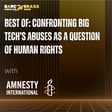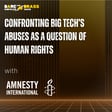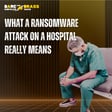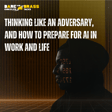
Duty, Burnout, and Redefining Security Team as Digital First Responders with JR Cunningham
JR Cunningham, CISO at Nuspire, joins the show to talk about why cybersecurity isn't just another IT job - mentally, it's more like being a first responder.
George K and George A talk to JR about:
🤔 Why we should consider cyber teams like first responders (not just IT staff)
😵💫 The unique mental health challenges of incident response
💪 Building cultures where defenders can actually take care of themselves
🧠 Why your IR plan needs to consider the human element
💬 "The higher up you go in security, the more you get the sh*t kicked out of you. Most professions get easier - ours gets harder."
Security leaders - how are you building support systems for your defenders?
————
👊⚡️BECOME A SHOW SUPPORTER
https://ko-fi.com/bareknucklesbrasstacks
For as little as $1 a month, you can support the show and get exclusive member benefits, or send a one-time gift!
Your contribution covers our hosting fees, helps us make cool events and swag, and it lets us know that what we're doing is of value to you.
We appreciate you!



















